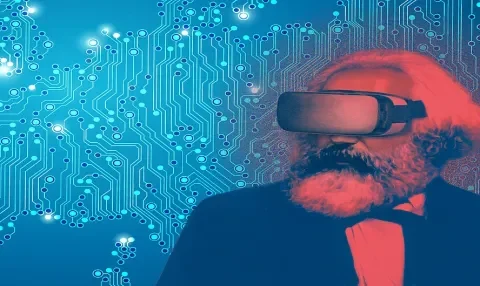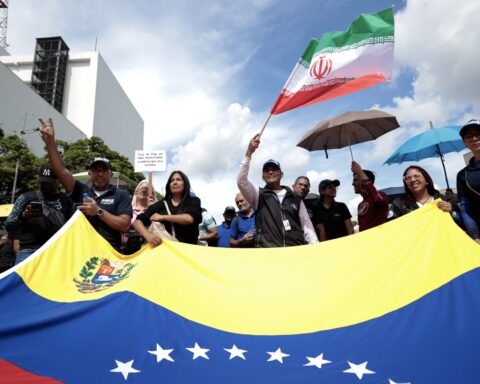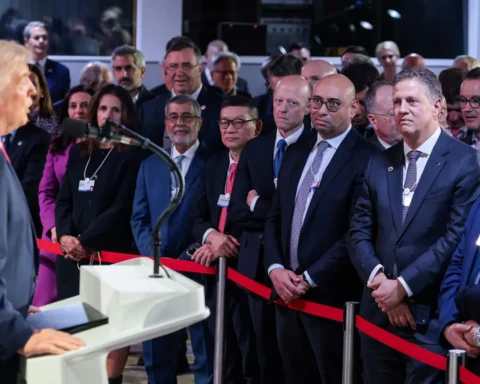For me, the end of the academic year is always bittersweet. The sweetness comes from seeing students cross the stage at graduation and realizing that many of them have been positively transformed by what they have learned and experienced since their arrival nearly four years ago. The bitterness comes from knowing that they will never again return to campus as students. Much like being a parent, success for a teacher involves making oneself irrelevant, something that provokes both pleasure and a little pain.
Undergraduate teaching is an especially beautiful calling. I have never regretted moving from a graduate institution back to teaching those who have just left home and arrived at college. It was where I started my career decades ago and it is where I hope to conclude it. The period between the ages of eighteen and twenty-two is critical in intellectual and cultural development. That is when we ask ourselves the big questions and start to move toward answers, when we have the time and opportunity to grasp what it means to be truly human. It is important, therefore, to be exposed to good teachers and big ideas that galvanize the imagination. For what it means to be human is surely the central and most vexed question of our age.
When it comes to that question, higher education has for decades now been part of the problem rather than the solution. Many humanities departments have adopted the anti-humanist philosophies of the post-structuralists and their epigoni. In such hands, human nature is something to be exposed as manipulative fiction and to be dismantled. They are easy targets for the self-styled anti-woke lobby.
But the radical philosophies being openly taught in the classroom are not the only dehumanizing forces at work. The fragmentation of academic disciplines and the culture of narrow specializations plays its role. Each discipline plays its part, carefully guarding its territory through journals, conferences, and often the generation of jargon impenetrable to those outside. The impact of this cannot be confined to the campus. In the long-term, it has reshaped how society thinks. We love our experts, and we like to do what they command. Of course, there are obvious gains from having focused specialists, particularly in the area of medicine where conditions require precise analysis and treatment. But medicine is perhaps also the finest example of the problem of specialization at a social level. It is noticeable how public moral discourse has increasingly become the domain of specialists in fields favored by our therapeutic culture—chief among them medical professionals, who alleviate our pain, and entertainers, who ease our boredom. In this, as in so much else, the time of Covid was revelatory. The “experts” on display on the nightly news were always medics, never moral philosophers. This is because our medics are today’s moral philosophers; we think of the good life in analgesic terms.
Then there is the shift to online education, removing the processes of learning from an embodied to a disembodied form. It may be hard to articulate precisely what is changed—or better, lost—in such a move, but that does not mean that the change is not real and significant. For students, college is not simply the textbooks they read or the information they imbibe. It is in a very real sense the people they sit next to in the lecture theater, the friends with whom they grab a coffee, and the long face-to-face conversations in the dorm room where important ideas are discussed. Education divorced from embodied, interpersonal interaction is education that lacks a central part of what it means to be truly human. This can only further fuel a wider culture where people mistake tweets for arguments and zingers for intelligence.
In such a time as this, higher education could, if it wished, be part of the solution. Indeed, there are some colleges where all students are required to take a humanities core, and where classrooms are full of real people engaged in real interaction. No one should become a medic, or an economist, or an elementary school teacher without seeing his or her calling within the framework of the human condition as a whole. It is time to rebel against the cult of the specialist and the isolated expert. Those thinking of college should remember that and seek out an institution that is committed to such a rebellion.
And so as I sit and watch the students process across the stage this Saturday, I will be reminded of the privilege I have, not simply of spending my days talking about the ideas and the books that I love (and, wonderful to tell, being paid for doing so), but of striving to teach, by precept and example, what it means to be truly human, at a time when such opportunities are rare. The lights have not all been extinguished, at least not yet, and there is no law that says higher education has to be part of the problem. It can be part of the solution. All it has to do is slough off its commitments to anti-humanistic philosophies, the cult of the expert, and the disembodiment of the classroom.
Source: https://firstthings.com/rebel-against-the-cult-of-the-expert/






